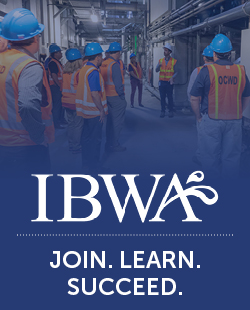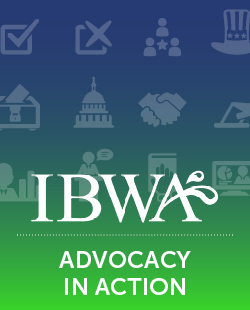IBWA Code of Practice
IBWA Code of Practice
The IBWA Bottled Water Code of Practice sometimes referred to as the “Model Code,” was first published in 1982. At that time, the U.S. Food and Drug Administration (FDA) regulations for bottled water were limited in scope. IBWA developed a set of standards that could be used as minimum standards to which association members would subscribe and to encourage state agencies to adopt it as a model for their own bottled water regulations. IBWA has continued to advance the Code of Practice through the 1980s, 1990s, and up to the present day.
To download the IBWA Bottled Water Code of Practice, CLICK HERE.
In recent years, with comprehensive FDA and state bottled water regulations in place, IBWA’s focus began to shift from providing a regulatory model to the following set of principles:
- The IBWA Code of Practice is a set of self-regulating industry standards. The Code of Practice establishes a comprehensive set of standards for bottler members to ensure product safety and quality.
- The Code of Practice provides specific guidance to current IBWA members. The Code of Practice is a reference document that provides, in one place, information members need regarding government and industry standards.
- The Code of Practice provides valuable guidance to “startup” companies, which are prospective members of IBWA. For companies that seek to enter the bottled water industry, the Code of Practice is a valuable resource to educate them on our industry’s technical and regulatory requirements and provides a framework within which they can establish their facilities.
- The Code of Practice enhances the FDA Good Manufacturing Practices (GMPs) and provides the basis for Hazard Analysis of Critical Control Points (HACCP) in the bottled water industry. IBWA has long sought enhancements to FDA’s GMP regulations. This was partly accomplished with the publication of FDA’s final rule for bottled water GMPs at 21 CFR Part 129. However, the Code of Practice has enhanced the FDA GMPs and has incorporated HACCP as an integral part of IBWA’s approach to food safety.
- The Code of Practice is a valuable communication tool and a benefit of IBWA membership. The Code of Practice is a valuable tool to provide to representatives of the media and consumers to help them better understand IBWA’s efforts to provide consumers with a safe, quality food product. Members can be confident in knowing that their conformance to the Model Code ensures that they are above federal regulatory requirements for safety and quality.
- The Code of Practice provides the basis for IBWA’s annual plant inspection program. A key provision of the Code of Practice, and a principal benefit of membership, is IBWA’s requirement for an annual inspection of each member bottlers’ facility by an independent third-party food safety organization. The program confirms the member’s conformance with the technical and regulatory requirements of the Code of Practice, and it rewards them for achieving superior performance at the plant: a valuable tool for the company’s promotional activities.
Background
On November 13, 1995, FDA published a standard of identity and quality for bottled water at 21 C.F.R. §165.110. The IBWA Bottled Water Code of Practice (Model Code) was revised to adopt the provisions that FDA had promulgated, but it was still considered a document that could be used to raise the standards for bottled water and distinguish IBWA bottlers from others in the industry. This was done partly by adopting industry and regulatory requirements that were sometimes more stringent than FDA’s, primarily in the area of GMPs.
In 2000, IBWA adopted the HACCP system into the Code of Practice. This was a significant advance for the industry because HACCP was not mandated for bottled water at either the federal or state levels of government. IBWA felt it was important to adopt HACCP.
The IBWA Code of Practice has adopted many of the state requirements for bottled water. However, there are some instances where an individual state requirement may not be included in the Code of Practice, such as source and finished product monitoring requirements for certain substances and bulk water hauling regulations. If a bottler sells in a particular state, he or she must ensure compliance with the state bottled water regulations.


